By Katy Macek | Photographed by Hillary Schave and Shanna Wolf
When it comes to her work, Madison-based artist Beth Racette thinks big. From her large-scale art installations to the two-story studio she built behind her house in 2002 where her garage used to be, physical space is important.
“I like to do installation and work on various projects at a time, so I designed it with many things in mind,” Racette says. “It’s a versatile space, and it’s not precious— the floor is all painted and stained and messy.”
She designed the space herself, right down to the high-placed windows—for natural light with maximum wall space—and an open, high ceiling. A staircase at the back leads to a second- story storage space above the right side of the studio and a small hangout where she can work on smaller pieces.
The studio has been cultivated to promote creativity, and it changes depending on her current project.
Her installations depict timely topics she cares about in ways that make people think—two of the reasons she loves her chosen medium.
“I wanted to create work that was about social interaction and engagement, people conversing and thinking together,” Racette says. “A central theme in a lot of my work is about interconnection and relationships.”
She’s tackled topics ranging from politics and the prison system to environmental issues and says her creative process involves many hours researching. She describes her art as a way to understand her observations.
“I’m always taking in new information, and I really try to learn a lot,” she says. “My art is kind of a way to synthesize the chaos and confusion in my mind; how do I understand what I just took in?”
In that way, her work is for herself. But she hopes viewers get something out of it, too.
“Primarily, it’s making sense of my own mind, but I hope that it does give space for inspiring other people to feel and move and open hearts and minds,” she says.
Though she goes in with an idea, her work, like many artists, is always evolving.
“It’s a relationship, and it speaks back to you,” Racette says. “Whenever I make something, it communicates back and always surprises me. It’s really a dance with what I’m making.”
Racette’s tips for designing a studio:
- Think about what you need. Each artist’s needs are different depending on what they are creating: How much space do you need? How big is your work? What kind of tools?
- Think about your own creative process. Do you work better alone or with others? “Some artists might want a hangout space, a place to sit around and collaborate with people,” she says.

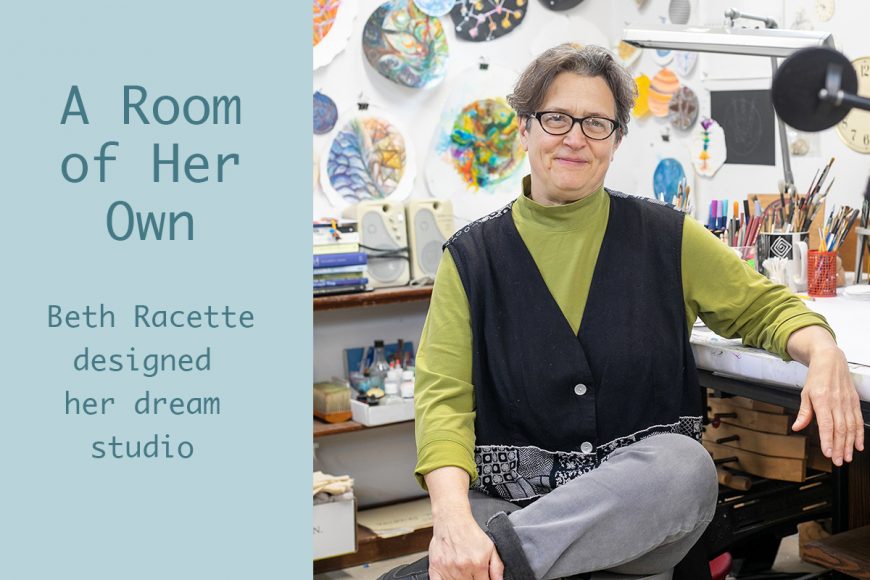
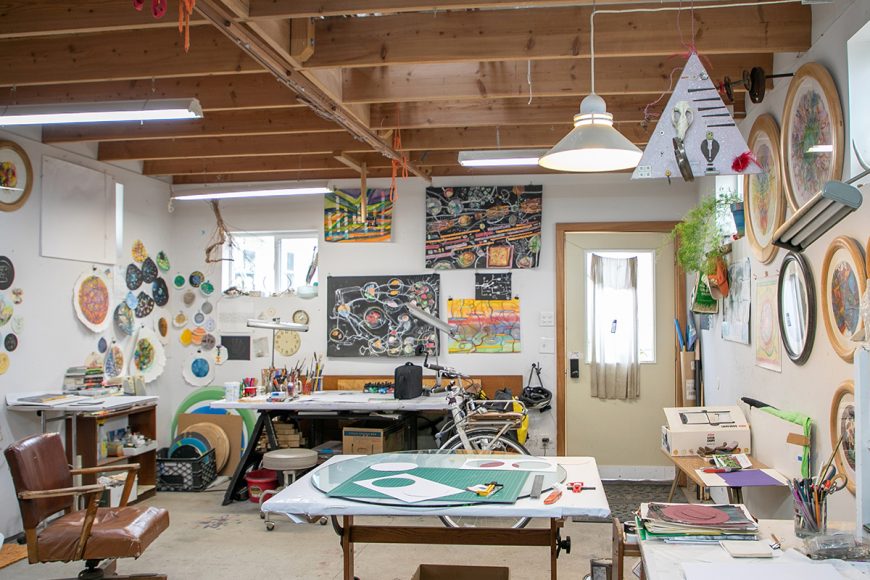
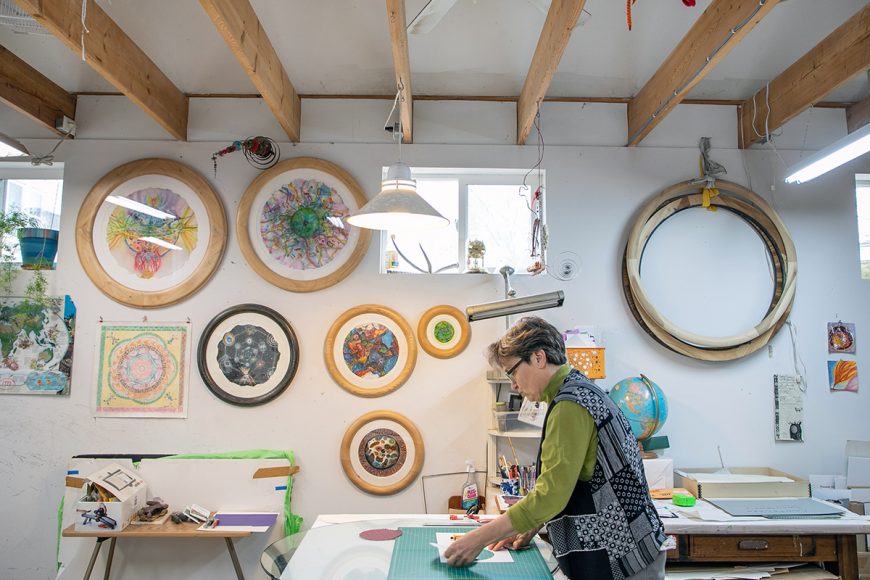
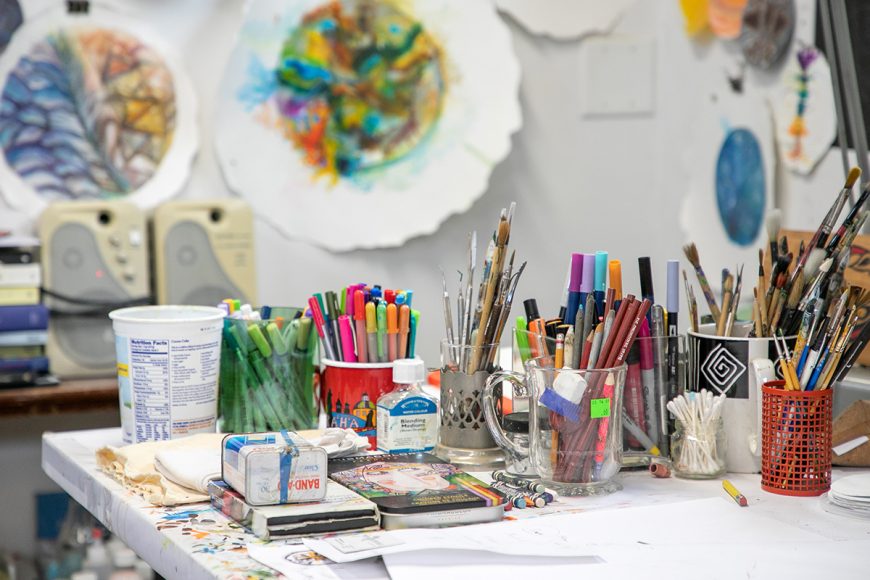

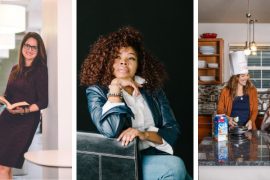
Comments are closed.